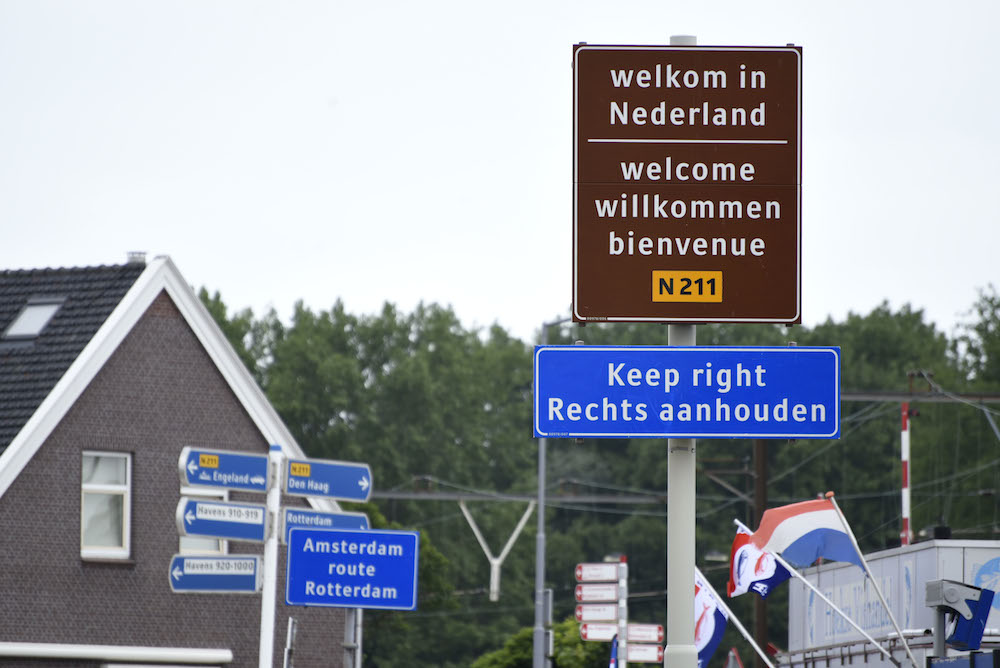Romania and Bulgaria to fully join Schengen area in January 2025
Claudia Delpero
Romania and Bulgaria will become full members of the open border Schengen area from January 1 2025, EU home affairs ministers decided on Thursday.
The decision to remove checks on persons at the internal land borders was made at the Home Affairs Council meeting in Brussels after Austria lifted its veto.
The Netherlands had long opposed the two countries accession too, but gave its consent last year. Asylum minister Marjolein Faber maintained this position with the support of parliament, despite her own party, the far-right PVV, attempted to overrule it.
NOS reported that PVV MP Marina Vondeling called the expansion of the Schengen area “irresponsible”, saying the removal of land border controls for Bulgaria and Romania would lead to “more asylum seekers, migration and corruption.”
She also criticised the timing, as “many countries are actually introducing more controls at the internal borders right now.” The Netherlands has tightened up its border checks this month.
Waiting since 2011
Romania and Bulgaria applied to join the Schengen area when they became EU members, in 2007. Since 2011 the European Commission has considered them ready for accession.
From the outset, however, the Netherlands was among the countries opposing the decision because of concerns about corruption and border management.
In 2022, the Dutch government said it would support Romania and Croatia’s accession but would continue blocking Bulgaria’s. Bulgarian members of the European parliament also launched an appeal to Dutch prime minister Mark Rutte to let their country join. Last year the Rutte government removed the last reservations, but Austria remained against.
Partial accession
In December 2023, the EU Council agreed that Bulgaria and Romania could partly join the Schengen zone on 31 March 2024, removing border checks on persons at internal air and sea borders, but maintaining them at land borders.
Since then, Romania and Bulgaria have been able to issue Schengen visas and days spent in the two countries by short-term visitors from visa-free countries count towards the maximum stay of 90 days in any 180-day period across the Schengen area.
“Historic moment”
In November, Hungary, Bulgaria, Romania and Austria agreed on a “border protection package”, which led Austria to remove its veto.
Minister Faber said that on this basis and with the consent of immediate neighbours, “an agreement could now be reached”.
“Today is a day of joy for all Bulgarians, Romanians and our entire union,” said commission president Ursula von der Leyen after the decision. “Both member states will fully join the world’s largest free movement area. This is important for all of us, European citizens and businesses. Together we will reap the benefits of a stronger and more connected union.”
“This not only strengthens the Schengen area but it will further strengthen the internal market, increase travel, trade and tourism,” a commission statement adds. “The Commission will also continue to offer financial support and Frontex assistance to both member states,” the statement said.
Reintroduction of border checks
The Schengen area was first created in 1985, abolishing border checks between France, Germany, Belgium, the Netherlands and Luxembourg. With Romania and Bulgaria, it now covers 29 countries: 25 of the 27 member states (excluding Ireland and Cyprus), as well as Iceland, Liechtenstein, Norway and Switzerland.
Countries which are part of the Schengen area can decide to temporarily reintroduce border in case of “serious threats to public policy and internal security”.
The Dutch right-wing government reintroduced controls at the borders on December 9. Border checks are currently also in place in Slovenia, Germany, Sweden, France, Denmark, Norway, Austria, Italy, Malta.
Thank you for donating to DutchNews.nl.
We could not provide the Dutch News service, and keep it free of charge, without the generous support of our readers. Your donations allow us to report on issues you tell us matter, and provide you with a summary of the most important Dutch news each day.
Make a donation